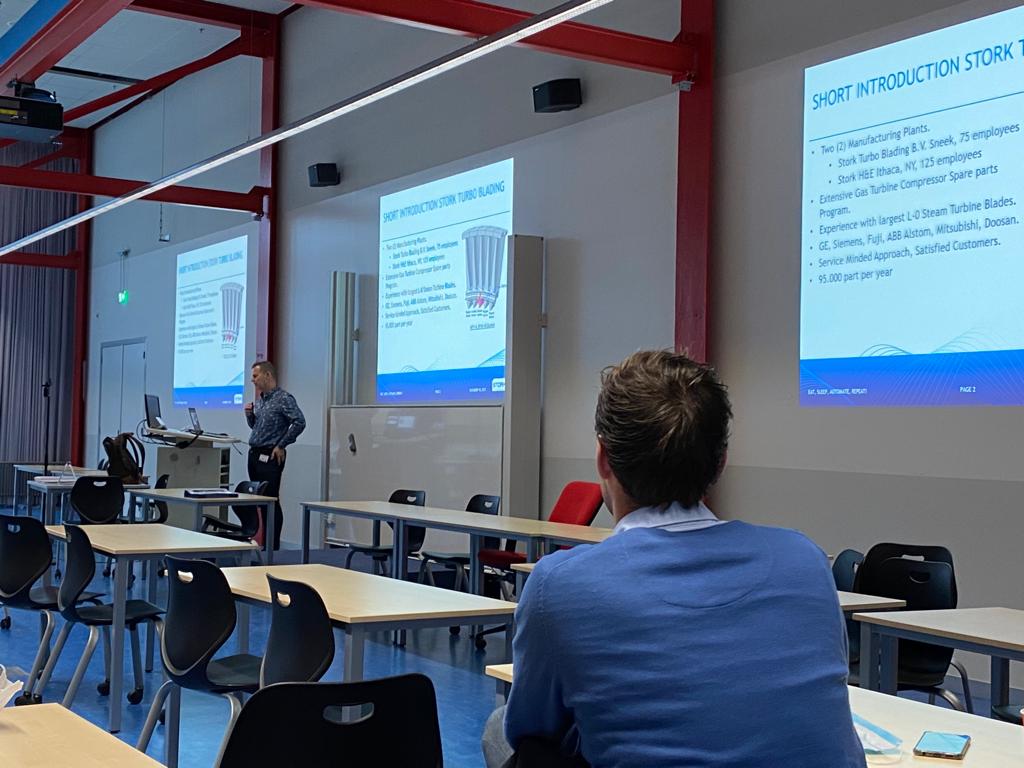
Principia Prize 2021
News | November 24, 2021
What didn't work out last year due to Corona, did take place this year: the Principia Prize 2021! On Thursday 18 November, 35 mechanical engineering master's students, divided over 9 teams, examined the case of Stork Turbo Blading. They were observed and judged by an expert jury consisting of Gerrit Mulder and Pieter Wiersinga from Stork TB, Eric Sloot from Philips, Dorien van der Belt, Steven van Olthof, and Soheil Arastehfar from TU Twente.
What is the Principia Prize?
Principia is an inventors' competition named after the Alumni Association of the Twente Faculty of Mechanical Engineering. The alumni challenge the Newton students to participate in a real case of an existing company. The winning team will receive a prize of 3,000 euros, high enough to arouse the interest of many students.
The case of the ICD company Stork Turbo Blading
In the production of turbine blades, the shape of the blade is made very accurately by means of milling. In order for the turbine blades to function optimally, they undergo post-processing in the form of sanding. This sanding is slowly but surely being converted from a manual to a robotized operation. TU student Pieter Wiersinga has developed a sanding hand for the robot for this. However, the sanding belts have a short lifespan of 20 minutes and changing these sanding belts is time-consuming. The request to the TU students was therefore to develop a warehouse for sanding belts with an automatic supply function for the sanding belt.
To make everything lifelike, a mockup of the robot hand was taken to Twente and the teams received an informative goodie bag a week before, including the offending sanding belts.
True competition
After a presentation of the case and an extensive round of questions, a demonstration of the mockup followed. This was followed by two rounds in the morning and afternoon in which the teams were given the opportunity to work out the principle, sketch CAD drawings and make their final presentation. In both rounds, Stork employees visited all teams once more to answer interim questions. The break was a good moment to highlight the activities of the ICD.
At 3 p.m. the carousel started with final presentations. After this, the winning team was chosen: Foundation. This team scored highest on the total design aspect, feasibility of the design and the content of the presentation.
The jury was impressed by the good and beautifully developed 3D constructions, which were simulated and projected in the presentations with moving images. The jury also found that the student teams had clearly made use of the design methodologies they had learned during their studies. In addition, they complimented all teams for their work ethic, team spirit, results and creativity. “It is unbelievable to see what a small design team of an average of four TU students can achieve in a short period of time.”


